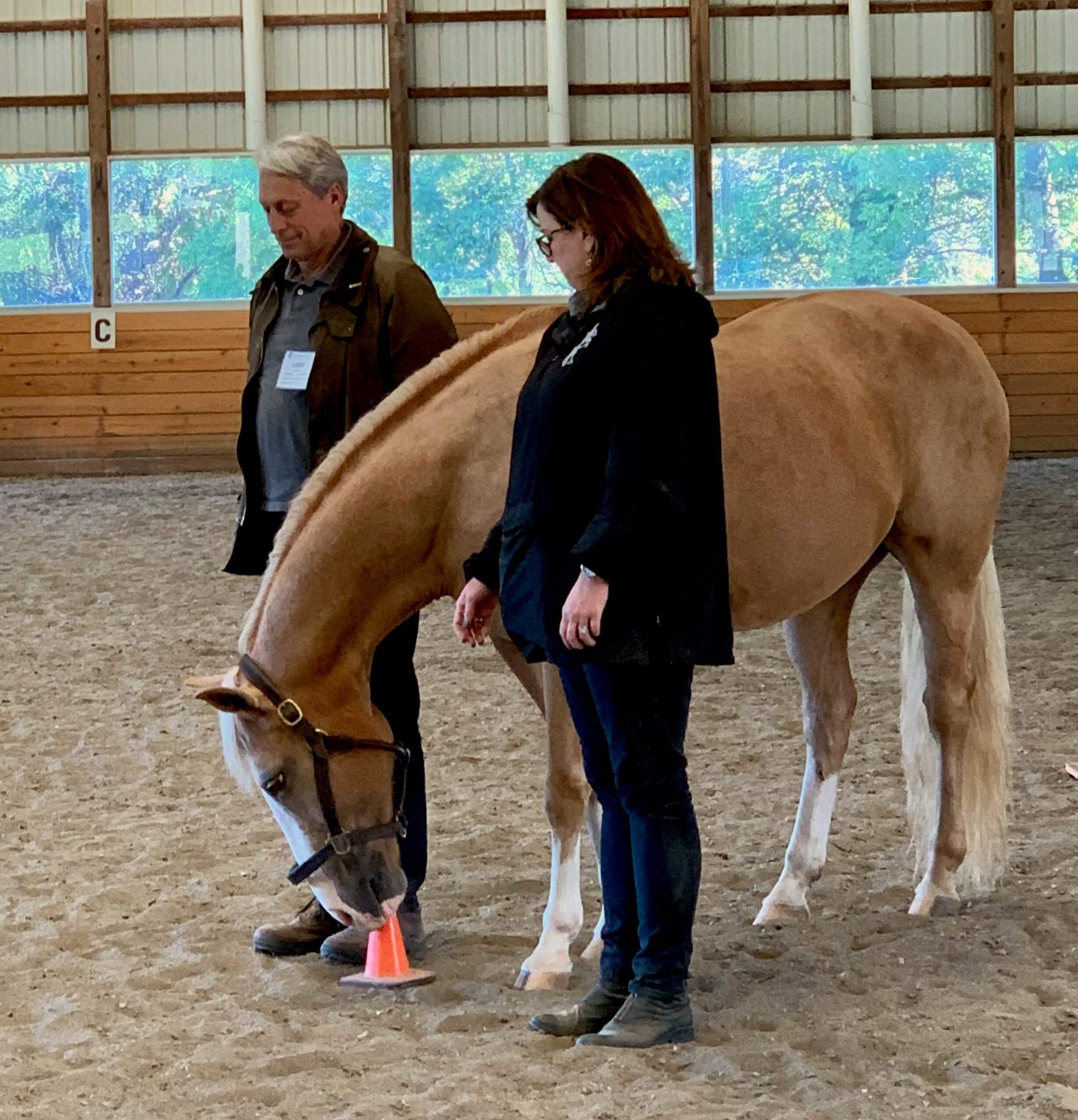EQUINE ASSISTED LEARNING
Making feedback an instructional solution to human performance challenges

“Any approach that can improve the clarity and timeliness of feedback was perceived to be among the most significant noninstructional solutions to human performance problems”
– Rothwell & Kazanas, 1998
“Somatics refers to the art and science of living in the human body; to the inherent and inescapable unity of thinking, feeling, and acting in the world… the place where sensation [perception], emotion, and cognitive interpretation of events all meet and interact to form one’s moment-to-moment experience of life.”
–Blake, 2009
Often, in the world of leadership development our Sense-abilities, utilizing all five senses, are left out of the equation, taken for granted. Yet, it is this somatic awareness that underlies and creates what we see and experience happening in the environment around us. “The body is indistinguishable from the self [and therefore]… it is essential to include the body if one wants to build the skills of exemplary leadership” (Strozzi–Heckler, 2003). It is only when we balance our intellectual (IQ), our emotional (EQ) and somatic (SQ) intelligences that we become fully aligned, congruent and are able to ‘show up’ and serve as transformative leaders.
The Engagement Quotient team challenges our clients to utilize perceptual skills that have long been dormant. Our goal when working with people is to provide an experience whereby in-the-moment, objective, somatic feedback from the horses allows clients to understand what it feels like to project and hold an Intention, a Vision, or create mutual engagement, among many other leadership competencies.
For more information on how Equine-Assisted Learning (EAL) increases engagement and supports the development of effective leaders download the following paper: “Equine Guided Leadership Education: Leveraging Somatic Intelligence in Learning Leadership Competencies” (Pohl, 2016)
For more information on the different types of Equine-Assisted Services (EAS) and current terminology used in this field, go to an article by Lissa Pohl in the University of Kentucky Equine Science Review (2020)
